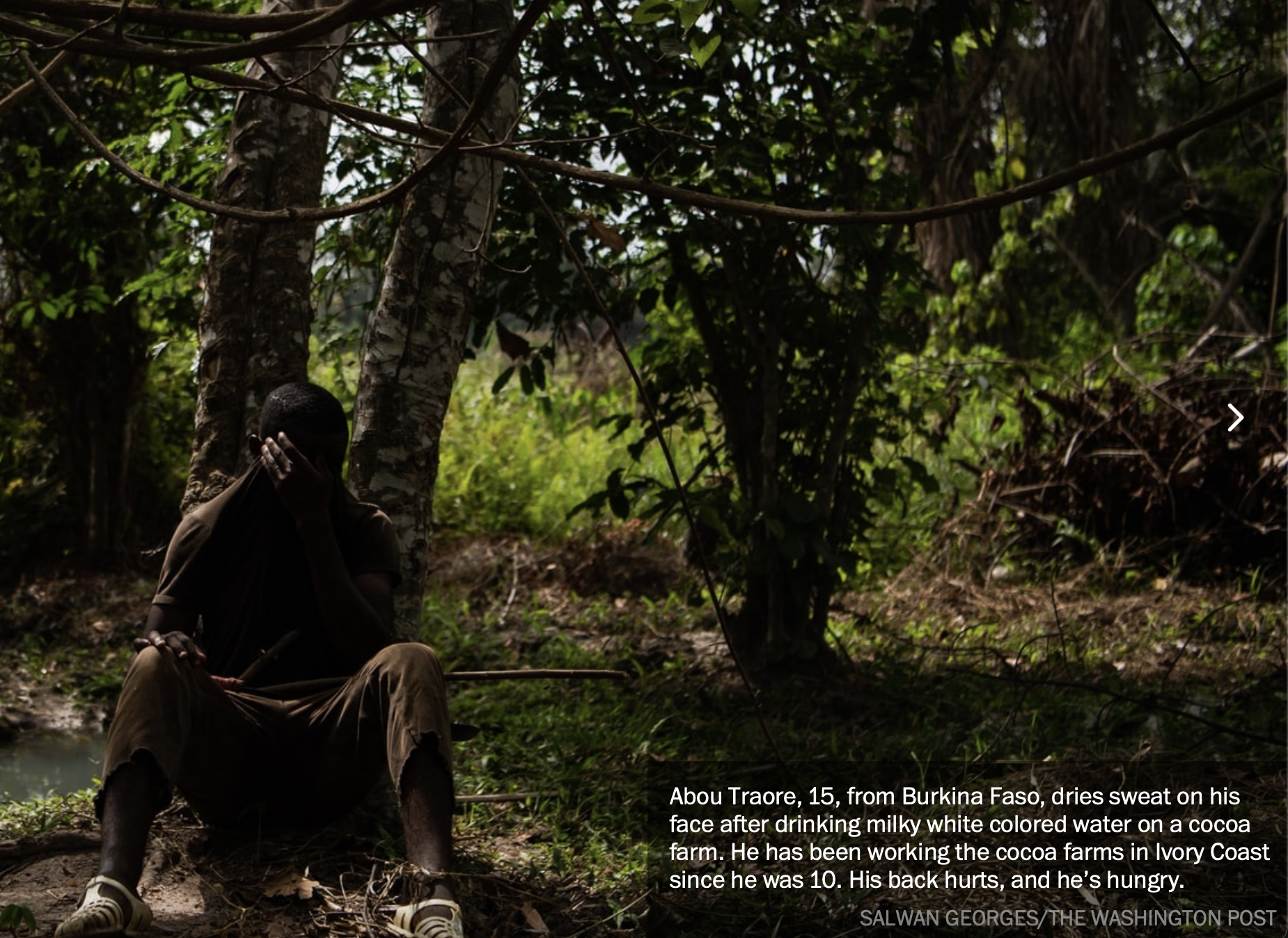Bittersweet
When was the last time you thought about where your food came from? In America, among several contemporary privileges, food is an excess. But when we grow food on our planet and export goods and produce, it becomes our anthropological responsibility to do so sustainably for the environment and our humanity. Luxury items especially, such as herbs and spices, coffee, and chocolate, are subject to extortion of habitats and its people.
The Mars and Hershey company dominate the American mouth and market, generating over $32 billion USD in total retail sales in 2023. However, almost three-quarters of my favorite flavor grows from a continent I have not yet even visited. West Africa in Côte d’Ivoire and Ghana alone account for 50% of global cocoa production. The reigning companies harvesting people to source their beans decided that the farmers didn’t need to be paid a fair wage, and that their children would have to work as well to subsist on their soil.
1.5 million children are exploited for child labor on cocoa farms.
These children are unable to go to school and spend years splitting cacao pods, just so I can buy a Hershey’s chocolate bar for just a bit over the US dollar with taxes. Luckily, a small number of chocolate competitors have emerged to fight against the child slavery sustaining the decadent dessert. In 2003, journalist Teun van de Keuken decided to investigate the international Harkin-Engel Protocol, urging the big chocolate manufacturers association to end child labor and slavery in the industry. After 2 years of demanding justice and attempting to persuade these companies, he established Tony’s Chocolonely in the Netherlands. Today, the chocolate bars are sold in every major US retailer to compete in this tainted market for $5, which pays adult laborers a fair wage. No child labor and a fair trade model are represented from the chocolate bar’s unique design: irregular shapes and inhomogeneous sizes represent the inequality running chocolate production. Tony’s Chocolonely operates on radical transparency throughout his product and maintains 100% traceability and conducts reports on child labor cases to actively work on eradicating this issue. The brand creates awareness, leads by example in the industry, and has inspired me to share this story. This isn’t sponsored at all, but please buy Tony’s Chocolonely because it also actually tastes good.
I urge everyone to think about where the things they consume come from, whether it’s our food and medicine, the clothes that we wear, the news and content that we hear and see. What is the source enabling the corporations to stay powerful? What kind of impact is my purchase having on a child in another country who hasn’t been to school in 5 years?

Source: The Washington Post, "The children who harvest cocoa" | Photograph by Salwan Georges
Consequently, what kind of message is being spread, or not spread?
food sustainability culture 